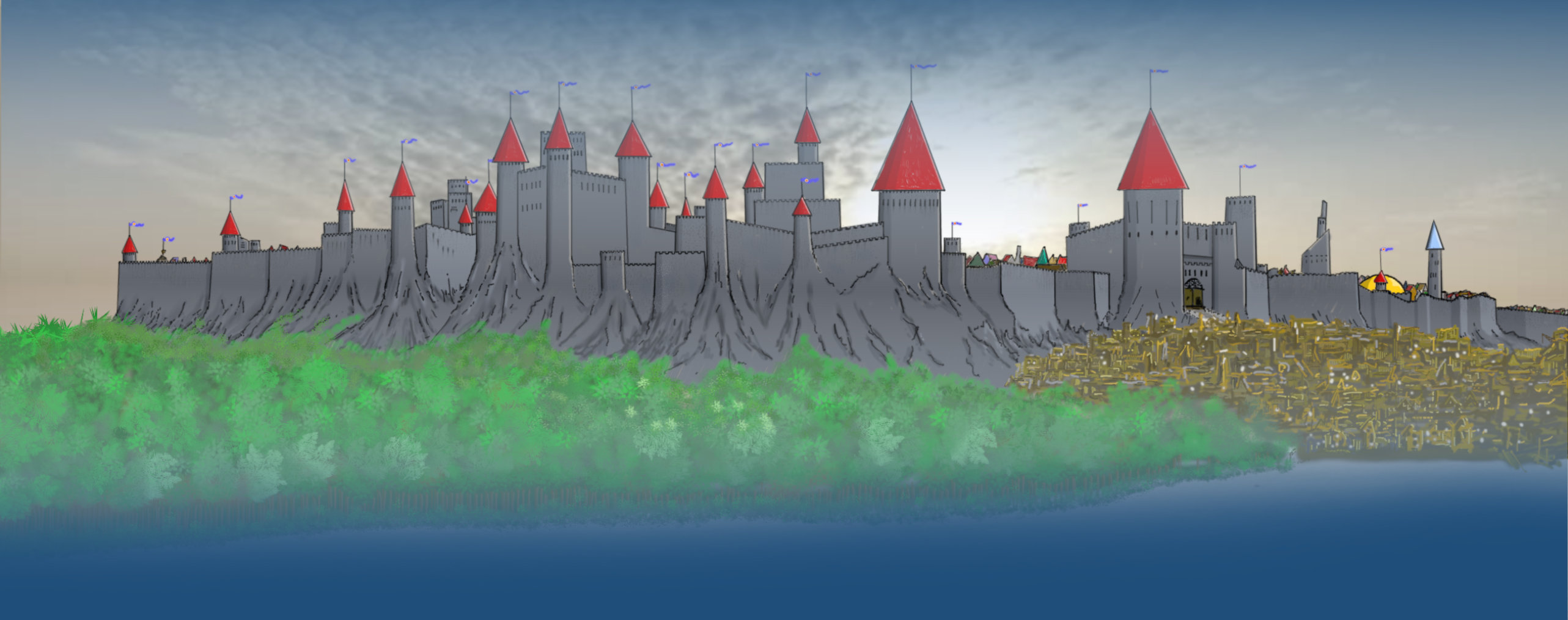What is OSR?
Dated: 01 Sep, 2024
This is a well-trodden path, but I don’t mind following the path most trodden now and then, so here’s my two-pen’th worth (or ten cents if you are over the pond). And I’m thinking aloud here, I’m not telling anyone what to do.
TLDR: OSR stands for a Role-Playing Safe Space to lose yourself in. Yeah, the letters don’t quite match, do they?
I have been writing scenarios, game settings and other supplements for OSR for several years and I thought I knew what it meant. Then I read a couple of posts and reviews on line about it and realised some people have a very different idea for what those little letters stand for. So, is there a consensus, I wondered?
The OS bit is easy – Old School, right?
Now, for me that meant 1st Edition AD&D. Thieves nicking rubies from a giant statue while their mates drag lizardman bodies around and a huge Effreeti setting about some adventurers near the City of Brass, right? The PROPER PHB and DMG, as everyone in their heart of hearts knows and understands.
Well, that was my thought, but, before you all flame me, I have realised I was being a bit naïve. According to a LOT of people, OSR includes 0D&D, fair enough. I’ve read it, never played it. A lot of others think it includes 2nd Edition. OK. That’s fine, pretty much the same game. Yet others suggest OSR includes Basic/Expert and BECMI. Wait, are those different things then? According to some, they are. There is a lot of granularity here, and it probably depends on the resolution of your D&D-Goggles as to how you see it.
Like many, I started my RPG journey with the red box, Moldovay set, back in 1981. Followed shortly after by the Expert set. There was a long gap, as I recall, before, the Companion set came out and by that time I had migrated to AD&D, mainly due to the bigger list of Magic Items I think, although there were other attractions.
So, OSR seems to include all versions of D&D pre-3rd edition? That seems to be the consensus on what the OS bit stands for?
Well, no. Some Old Schoolers reject limiting it to FRPGs and suggests Traveller and other such games should be included. There’s even a whole host of Sci-Fi games referring to themselves as OSR. Likewise Call of Cthulhu and new horror/thriller games set in a variety of historical settings.
This is all good fun, so Old School seems to mean, simply, Games that were about in the seventies and eighties. OK. Well, that’s a LOT more than I thought, but I like it. Very inclusive and I know all these games too.
But what about the R in OSR?
Googles’ AI Overview says: “Old School Renaissance: This is a play style movement in tabletop role-playing games that draws inspiration from the earliest days of tabletop RPGs, especially Dungeons & Dragons.”
Wikipedia says Old School Renaissance or Old School Revival, as does Dicebreaker and Quora. There are a lot of people already asking this question, it seems, including Tenkar’s Tavern defining OSR by what it is not and starting out with the solid, good advice that when faced with the question just say “Oh Shit” and run…
I think “Renaissance” has admirable ambition but was perhaps over-optimistic. “Revival” seems a little more realistic, but some of us never stopped playing it so Revival seems to be ignoring what we’ve been doing for the last 20 years.
So, here’s some other thoughts:
Revisited? Like a trip down memory lane. Like visiting your old school and remembering stuff that happened, but then the actual experience of OSR is more like going back to school and trying to get back that fun and excitement. But no. I have run games for teenagers and, while they enjoyed it, I didn’t. Their lack of sophistication frustrated me. I didn’t want to watch a load of people just do the same stuff I did until I knew better. And I am not being elitist here, much. I like my games to have depth, not just a list of things to kill and traps to kill you. Zoo Dungeons are not my bag any more.
Resurrected, Raised from the Dead? No, really, just no. There’s a reason no one else is suggesting this. Likewise, revivified, before you say it.
Reincarnated? Not really. It’s the same game we’re playing. It’s not new incarnation.
Regeneration? Now, this has legs. I am a big Dr Who fan and he gets regenerated all the time. New actors, new clothes, new stories, same old structure. It kind of works. But OSR is about D&D and in D&D Regeneration means leaving one character to start a fire while the others try and kill the Trolls.
Re-registered? Cynical, I know, but the OGL and all that legal stuff leaves me cold and is a bit frightening. I play and write for OSR because I want to steer very clear of getting into any copyright or licencing shenanigans. No thanks.
But this is the one I think it boils down to in the end. The whole world of Barnaynia and Dunromin all started way back in 1986 and 87 as a 1st Edition AD&D setting. When we wrote it up, we wrote it up for 1st Generation AD&D with some ideas from 2nd edition. When we decided to publish it, however, we realised this was a no-no. We couldn’t claim anything of the sort, quite rightly, the game creators should have their slice of the cash. I know they probably don’t but, y’know, lawyers…
You can’t copyright a game, apparently (I read this somewhere, I can’t remember where and I can’t recall what country it was in) and our creations were new, original, written by us with nothing copied from anywhere else. They just used the AD&D rules. But we didn’t want to push it, so we did a bit of digging and came across OSRIC. Brilliant.
If you haven’t tried it, OSRIC is a very close experience to AD&D but with a lot of the complications cleared out, some of the more arbitrary rules tidied up and some of the artefacts from wargames and such removed. We love it. Simple, straight-forward and close enough to our original. Great. So, we re-wrote all our stuff to work with OSRIC. It didn’t take long.
Then a friend showed us Old School Essentials, Advanced Edition, and we liked that too. The ascending Armour Class was a nice idea and we rolled that into the products and started the relationship with the cool and friendly people at OSE as well.
So, how does this answer the question?
Well, like everyone else, I have come to the conclusion that OSR means what it means to whoever is using it. It’s a massive cop-out but really, what does it matter? There’re no enforcers out there demanding we stick to a consensus (well, there is, but I am not sure they haven’t missed the point), it’s just a short-hand. Generally, it means “Stuff for people who like old role-playing games” or, more often, “People who like D&D but don’t want to play any edition passed 2nd”
For me, OSR represents a community that likes nostalgia or the fun and excitement they remember from their teenage or college years. But they also want a mature game that we understand. A game with depth, that’s been thought through, that works in a ruleset we could recite in our sleep, so that the emphasis is on the characters, and the adventure, and the plot, and the combat, and the interactions. Not about learning a new set of rules and then struggling to get yourself immersed in the game.
For me, OSR is Dunromin and Barnaynia. Not because I can only play in that world setting, but because that world setting is the one we find ourselves immersed in most easily. We don’t have to worry that we don’t understand the mechanics and might make a fool of ourselves by trying to do something we can’t. We KNOW the WAY the game works, and we can play freely and safely within it.
Barnaynia and Dunromin is simply our incredibly elaborate, intriguing and fun Safe Space. Come and have a look for yourself - you won't forget it!



